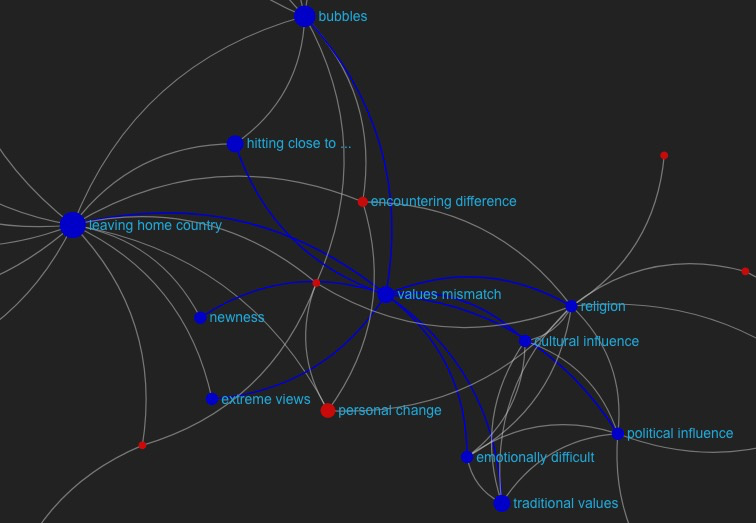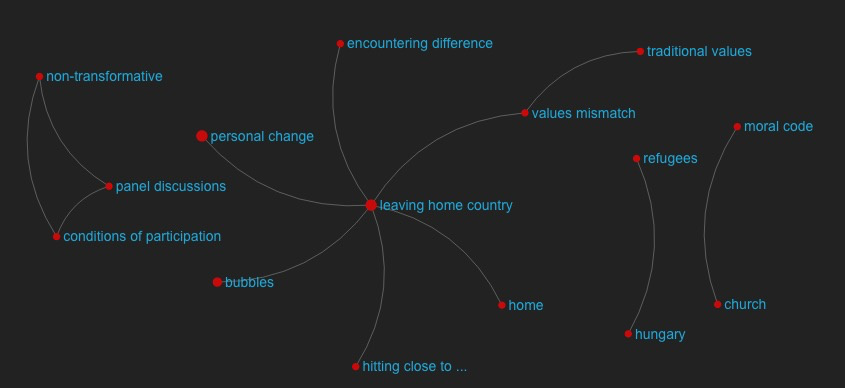@amelia asked me to cast a look at the first version of the POPREBEL Graphryder dashboard with a fresh pair of eyes. Here we go.
First off, this is all very tentative, because looking at the graph generates intuitions, but I cannot verify them because of the bug that prevents reading the full text underpinning the edges (heads up @hugi). This is a severe limitation.
Another massive limitation is that the Detangler view does not work at all (cc @matthias).
Graph with >= 2 co-occurrences
There are several connected components. I am ignoring the ones with only two nodes and one edge, too embryonic to build much on. This leaves two small and one giant component.
The smallest >2 nodes components, it seems, is about Poland and organizational arrangements of populism. The other one reflects a more abstract conversation, with codes around gender and participations.
The giant component has a center of mass based on three high-degree nodes: leaving home country, personal change, and bubbles. leaving... connects to codes seeming to represent a rich world view that comes with physical mobility. If I had to make a guess, I would guess that part of the conversation is about how diaspora people see things differently from those who stay behind. Bubbles has the connections you might expect for a conversation about echo chambers, including the revealing value mismatch. I find most intriguing the connections between personal change, leaving home country, encountering difference and feeling at home. Pretty clear what is going on here with the diaspora anti-populists.
In the same region of the graph, we encounter what looks a relevant group of codes around values mismatch.

On one side of this there are leaving home country, and the codes of modernity like personal change. On the other, the codes of tradition like religion and traditional values. We can infer that the conversation contains accounts of the conflict between the two sides, as it plays out in the political and media landscapes (cultural and political influence) and in the self (emotionally difficult and of course values mismatch itself). Moving further away from the codes of modernity, we seem to find a more theoretical part of the conversation, centered on moral code and composed mostly of codes representing abstractions.
Graph with >= 3 co-occurrences
When “filtering in” only codes co-occurring three or more times, we are left with a graph with only 15 nodes and 9 edges.

However, the macrostructure of codes of modernity (associated to leaving home country) connecting to codes of tradition via values mismatch is still recognizable. If I were to venture a guess, I would argue that this is a promising avenue for analysis, and we should try to examine in depth the evidence we already have for how this contrast plays out in people’s lives, and elicit more.